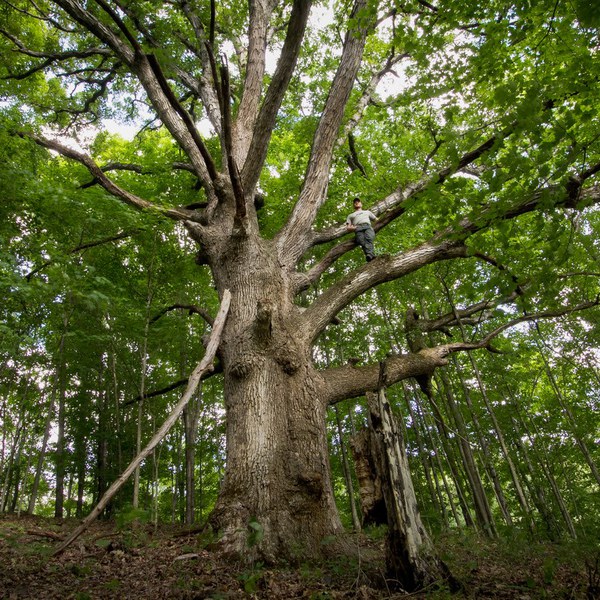Please note: this event will not be recorded.
The woodlands of the eastern states, among other regions, stand peppered with large, wide-spreading old trees amidst a younger forest matrix that has emerged around them. Commonly called wolf trees, these landscape anachronisms showcase an ecological and economic history of change on every acre in which they are found. You can find these large old trees hidden in the forests of many nature preserves, national parks, and even some urban park woodlands—seemingly any patch of forest with a history of clearance and abandonment is likely to hold a wolf tree. In this talk, we’ll journey from the wolf tree’s linguistic and cultural origins in the Germanic worlds of the Middle Ages, to America’s wolf tree origins during Thoreau’s day, to the concerted efforts of 20th century forestry to cut them down. We’ll explore the intricate ecological role these trees play as the elders of our contemporary forests and the important and rare habitat they offer to forest organisms. Their values as living cultural legacies will also be discussed. As a necessary consequence of unraveling wolf tree history, we’ll briefly explore the basics of landscape interpretation and how you can identify field marks of landscape history on your next walk in the woods.
Michael Gaige is an independent consulting ecologist from upstate New York. His work explores the intersection of nature and cultural history using field evidence and archives to reconstruct land use history. Michael works with organizations and private landowners on historical ecology inventories, park design projects, and conservation planning for natural areas. He has an affinity for large old trees, the stories they tell about landscape change, and their ecological values. Michael holds an MS from Antioch University and BA from Prescott College and has taught field studies programs at several colleges and universities for nearly 20 years.

